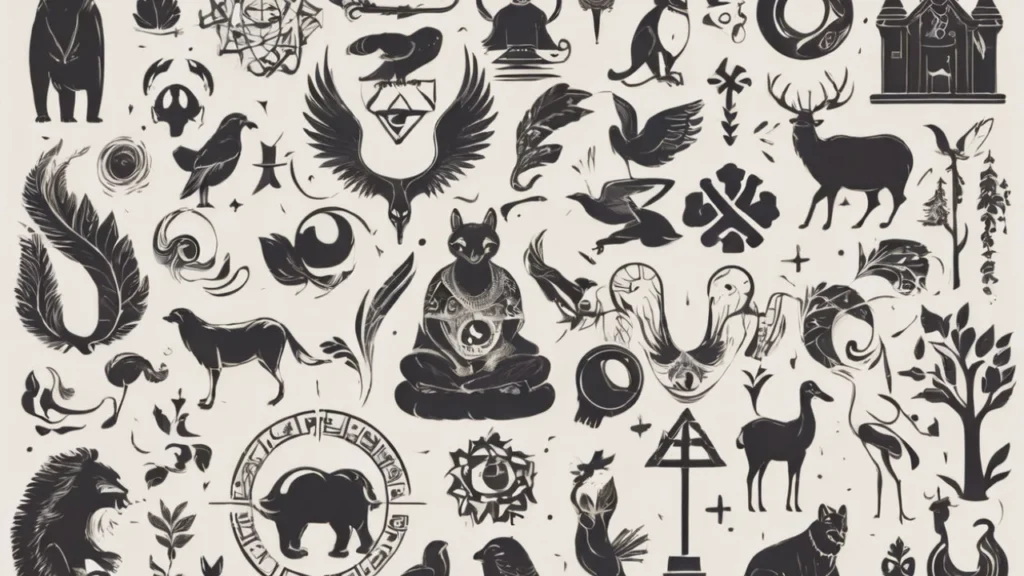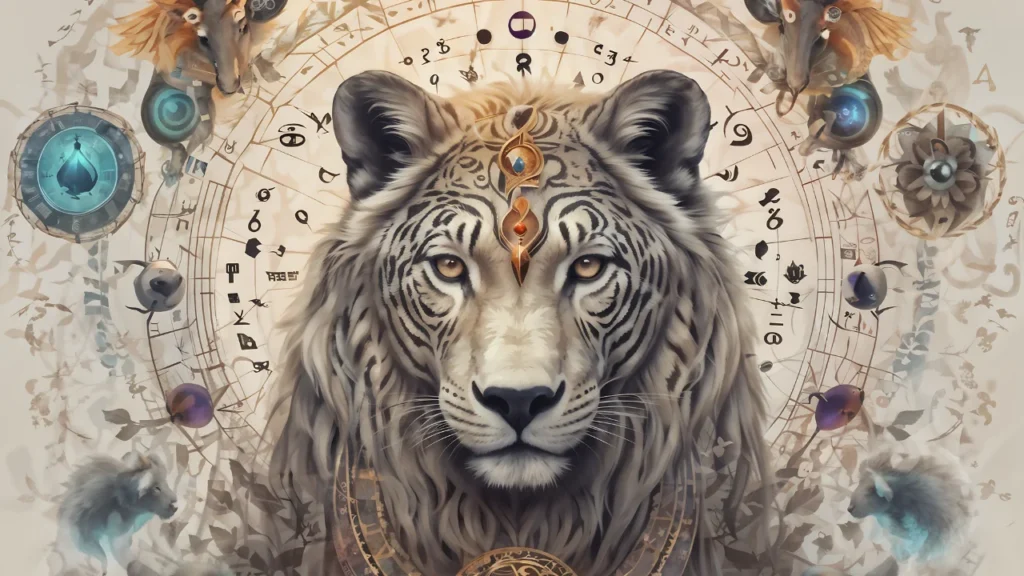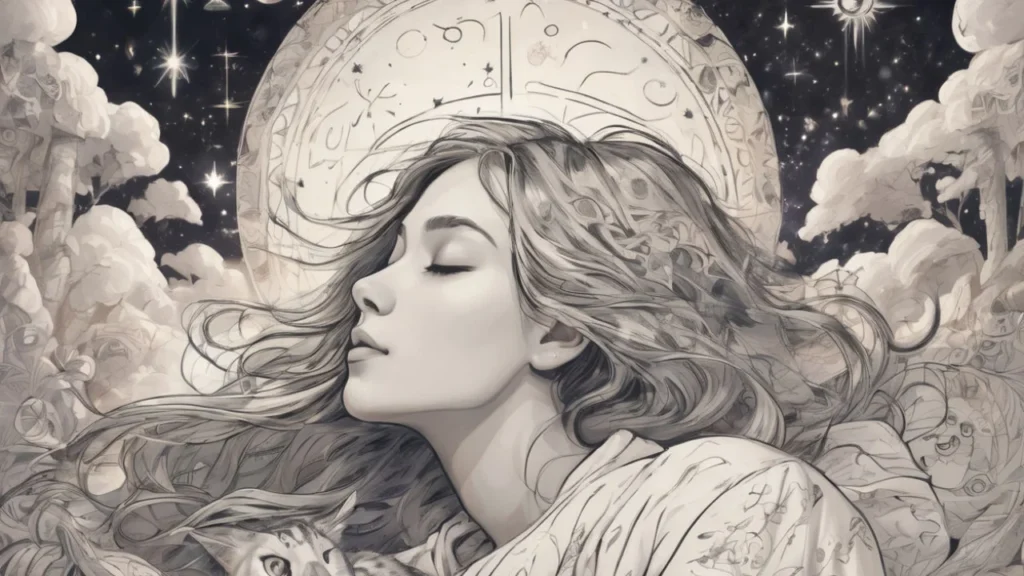The connotative meaning of dreams is captivating humans with lingering emotions, vivid images, and, a nagging sense that there is more hidden beneath the surface.
Yet beyond their literal snapshots lies a vast world of connotative meaning—a realm where symbols and metaphors intertwine with personal and cultural significance to reveal insights.
The Connotative Meaning of Dreams is
Imagine dreaming of a river winding through an expansive landscape. At first glance, this might appear as a simple reflection of our physical surroundings or a memory.
But beneath this literal image flows a host of connotative meanings, reaching back into personal and collective consciousness. Water, for instance, often symbolizes emotions, change, or even the subconscious.
Psychologists estimate that nearly 65% of recurring dream themes contain symbols associated with water, pointing to its role as a deeply embedded metaphor for the human experience of transformation and emotional release.
What are the Common Dream Motifs?

To truly grasp the connotative meaning of dreams is essential to consider the recurring symbols that emerge within them. Common symbols like animals, numbers, and natural elements often bear unique meanings beyond their physical forms.
A dream of a lion might seem like a random encounter with a fierce animal,
yet symbolically,
lions often represent courage, power, or authority.
In one study, 71% of participants who dreamed of animals reported feeling that the animals in their dreams symbolized personal qualities or challenges.
Animals as Symbols
Animal dreams may reflect the dreamer’s personality traits or struggles. For instance, snakes in dreams can be harbingers of transformation or hidden fears, and birds might symbolize freedom, hope, or a longing for transcendence.
Numbers and Colors
Numbers and colors in dreams are equally loaded with meaning. Numbers like three or seven often have cultural and religious significance, resonating with ideas of completeness or divine guidance. Colors too play a role, with red representing passion or danger and white often symbolizing purity or peace.
Psychological Insights into Dream Interpretation
Psychologists, particularly Freud and Jung, dedicated much of their work to interpreting dreams, believing them to be windows into the unconscious. Freud suggested that dreams were a way for suppressed desires to manifest, often through symbolic language.
Conversely, Jung expanded this view by proposing that dreams draw upon the “collective unconscious,” a shared pool of human experiences and archetypes.
He saw dreams as messages that can reveal personal insights and universal human struggles.
Modern psychology confirms that dreams indeed carry a blend of personal and archetypal elements.
A survey by the American Psychological Association found that 78% of individuals experiencing frequent dreams or nightmares related them to daily stressors.
Cultural and Spiritual Significance of Dreams

Dreams have held spiritual significance across numerous cultures for centuries. The Bible, for example, is filled with stories of vivid dreams that acted as divine messages—from Joseph’s prophetic dreams to the vision of Jacob’s ladder. In Hinduism, dreams are often seen as tools for enlightenment or messages from deities. Indigenous cultures like the Native American tribes view dreams as spiritual journeys, where the dreamer can connect with ancestors or gain guidance.
Research shows that 63% of people from religious backgrounds consider their dreams significant, and a significant portion feels that dreams may come as warnings or prophetic signs. For those with a spiritual inclination, interpreting dreams becomes a practice of listening and discerning, seeking guidance in the symbols and feelings that emerge.
Personal Influences on Dream Meanings
While universal symbols play a role, the connotative meaning of dreams is also deeply personal. Personal associations, memories, and recent experiences all influence dream content and meaning. Someone who associates the ocean with childhood vacations might find that water in their dreams represents comfort and nostalgia. For another, it could symbolize overwhelming emotions or fear of the unknown.
Dream analysis therefore requires a personal touch—interpreting a symbol not only for its universal meaning but also for how it resonates with one’s own experiences and feelings. Keeping a dream journal can be an invaluable tool, as recurring themes and symbols often reveal hidden aspects of oneself over time.
Here are the Dream Secrets:

- Do not share bad dreams with anyone. By sharing, you are declaring them to manifest in your life, so keep quiet when this happens.
- Cancel a Bad dream in prayer.
- You can edit your dream by imagining it again right after you wake up and changing the situation. For example, you can kill your enemy by imagining, restore the blessings by taking back from the thief, and so on. This Dream editing is possible right after the dream because the portal is opened and you can tap into that.
Practical Tips for Interpreting the Connotative Meaning of Dreams
If you’re intrigued by the idea of unlocking the symbolic layers in your dreams, there are practical steps to take:
- Start a Dream Journal: Record your dreams as soon as you wake up. Note the symbols, feelings, and events. Over time, patterns will emerge that reveal recurring themes and personal insights.
- Consider Cultural and Spiritual Backgrounds: Symbols can vary across cultures, so consider your heritage or faith when analyzing symbols. For instance, dreaming of the sun might signify warmth and vitality to some, while it represents enlightenment or divinity in many spiritual traditions.
- Look for Emotional Resonance: Dreams that evoke strong emotions are often significant. Take note of how you felt during and after the dream; this can provide clues about its underlying meaning.
- Seek Insight from Trusted Sources: If a dream feels particularly powerful or troubling, consulting with a spiritual mentor, therapist, or dream analyst can provide a deeper perspective.
- Reflect and Meditate on Recurring Themes: Recurring dreams are particularly important; they often signify unresolved issues or spiritual lessons.
Conclusion
The connotative meaning of dreams offers more than answers—it provides us with a powerful tool for self-reflection, healing, and spiritual growth. As we dive beneath the surface of our dreams,
we discover that they serve as a bridge between the conscious and unconscious, the physical and the spiritual. They call us to a greater understanding of ourselves and our place in the world, inviting us to explore the symbolic and personal layers that lie hidden within.
FAQs
What is the connotative meaning of dreams?
The connotative meaning of dreams refers to the symbolic and metaphorical significance of dream imagery and themes. Unlike the literal or surface-level interpretation, it delves into the emotional, cultural, and psychological layers that can reveal deeper personal insights, spiritual messages, or universal human experiences.
How can I differentiate between literal and symbolic meanings in my dreams?
Literal meanings reflect straightforward events or scenarios that may mirror daily life, while symbolic meanings often involve metaphors or unusual elements that evoke emotions or associations. For example, dreaming of a storm might not mean an actual storm is coming, but it could symbolize internal conflict or turbulent emotions.
Why do dreams often use symbols instead of direct messages?
Dreams communicate through symbols because our subconscious mind often processes experiences and emotions in this way. Symbols allow for complex ideas and feelings to be expressed in a condensed and often indirect manner, making dreams rich with layered meaning.
Are there universal meanings for common dream symbols?
Yes, some symbols—like water, fire, animals, and certain colors—carry universal meanings that are rooted in cultural, historical, or psychological associations. For instance, water often represents emotions or the subconscious mind, while animals can represent personality traits or fears. However, personal experiences also influence how you might interpret these symbols.
How does culture impact dream symbolism?
Culture plays a significant role in dream symbolism, as different societies attach unique meanings to certain symbols. For example, in Western cultures, dreaming of a snake might symbolize fear or betrayal, while in some Eastern cultures, snakes can represent wisdom and transformation.
Can dreams provide insight into my mental health?
Yes, dreams can often reflect your emotional state and provide clues about unresolved stress, anxiety, or trauma. Recurring nightmares or troubling dream themes may indicate underlying emotional issues that could benefit from reflection or professional support.
Do dreams have spiritual significance?
Many people believe dreams hold spiritual meaning, especially in religions and cultures where dreams are viewed as messages from the divine or the subconscious. Spiritual dreams may offer guidance, warnings, or insights into one’s life path and relationships with others.
How can I interpret my dreams effectively?
To interpret your dreams, start by keeping a dream journal to record details and emotions. Reflect on the context and symbols and consider their possible connections to your personal life and experiences. Consulting resources on dream symbolism or speaking with a therapist, spiritual mentor, or dream analyst can also provide further insights.
Why do I often have recurring dreams?
Recurring dreams typically indicate unresolved issues, stressors, or ongoing situations in your waking life. They may be your subconscious mind’s way of drawing attention to something important or encouraging you to work through a specific problem or fear.
Can dream interpretation improve my personal growth?
Yes, exploring the symbolic meanings of dreams can lead to greater self-awareness, emotional healing, and spiritual growth. Understanding recurring themes or symbols can reveal patterns in your thoughts, behaviors, and emotions, helping you make more conscious decisions in your waking life.


